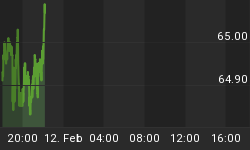No, we're not talking about some investigation into a political or corporate scandal. We are talking about the flow of funds into corporate equities and what the historical record shows. The Federal Reserve publishes the Flow of Funds Accounts of the United States in their Z.1 release the third month of each calendar quarter. The quarterly data for the third quarter of 2004 was released on December 9 of this year. The data for the following chart can be found in Flows Table 213.

Chart Notes:
-
Flows for the bottom panel of the chart are composed of the following: Mutual Funds, Closed-end Funds, Exchange Traded Funds (the Fed's data begins in 1993) and Broker/Dealers.
-
Flows are shown as a combined total of the four categories both quarterly (orange line) and a four quarter sum (columns).
-
Prior to the launch of the GREAT BULL MARKET in 1982, flows are hardly recognizable in the bottom panel.
-
The surge to all time highs by the S&P 500 Composite in 2000 was accompanied by record inflows into corporate equities.
-
The peak of quarterly flows took place in the first quarter of 2000.
-
The third quarter of 2002 recorded net outflows on a quarterly basis.
-
The four quarter sum reached a new all time record in the first quarter of 2004 surpassing the previous high recorded in the third quarter of 2000.
-
The four quarter sum in the second quarter of 2004 is the current peak.
-
The overall pattern of the four quarter sum roughly correlates to the pattern of the S&P 500 Composite.
-
Now, if our crystal ball could only tell us what flows are doing currently and will do looking forward.
















